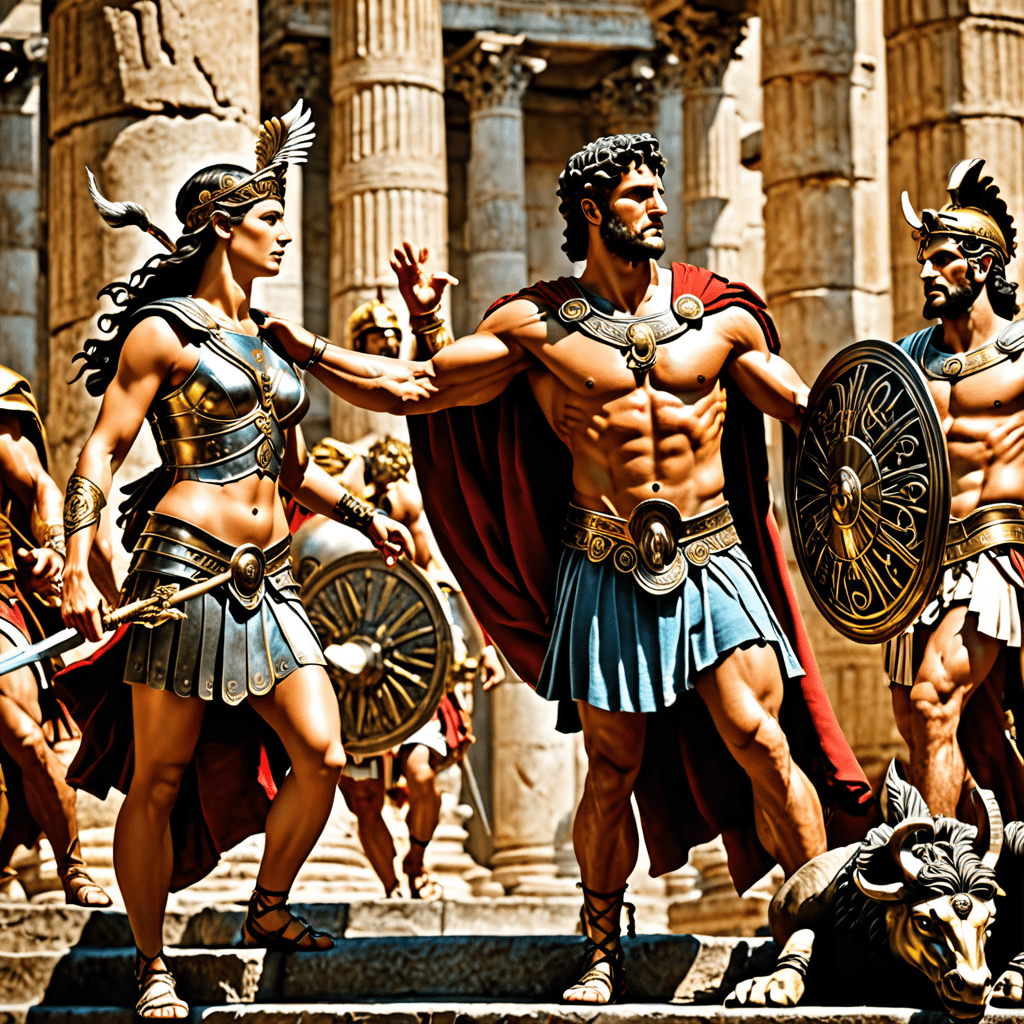The Symbolism of Journeys and Quests in Roman Mythology
Understanding the Importance of Journeys and Quests in Roman Mythology
In Roman mythology, the theme of journeys and quests holds significant symbolic value. These journeys often represent more than just a physical passage—they embody personal growth, overcoming obstacles, and spiritual enlightenment. Heroes and deities alike embark on these epic journeys, mirroring the challenges and victories of human existence.
The Hero’s Journey in Roman Mythology
Similar to other mythologies, Roman mythology features the classic hero’s journey archetype. Heroes like Aeneas, for example, undertake perilous quests that test their courage, wisdom, and virtues. Through these journeys, they often discover their true identities, fulfill prophecies, and bring about change in the world around them. These mythical quests serve as allegories for the trials and triumphs of life itself.
Symbolic Meanings of Specific Journeys in Roman Mythology
In the story of Aeneas, his journey from Troy to Italy symbolizes the foundation of Rome and the establishment of a great empire. Each step of his quest mirrors the challenges and sacrifices necessary for the creation of a powerful civilization. Other journeys, such as Hercules’s labors and Orpheus’s descent into the underworld, represent themes of struggle, liberation, and the eternal search for knowledge and truth.
The Collective Human Experience Reflected in Mythical Journeys
While these myths stem from ancient times, their themes of journeys and quests remain timeless and universal. They reflect the collective human experience of growth, discovery, and transformation. Whether it is overcoming obstacles, finding inner strength, or seeking enlightenment, the symbolism of journeys in Roman mythology continues to resonate with us today, reminding us of the enduring power of storytelling and the eternal quest for meaning.
FAQ: The Symbolism of Journeys and Quests in Roman Mythology
What is the significance of journeys and quests in Roman mythology?
Journeys and quests in Roman mythology symbolize a hero’s transformation, growth, and overcoming obstacles. They often represent the individual’s inner journey towards self-discovery and enlightenment.
Can you provide examples of famous journeys and quests in Roman mythology?
Certainly! One notable example is Aeneas’s journey in Virgil’s “Aeneid,” where he travels to found Rome, facing numerous trials. Another is Hercules’s Twelve Labors, a series of quests showcasing his strength and virtue.
How do these journeys and quests impact the characters in Roman myths?
These adventures test the characters’ courage, wisdom, and virtues, shaping their destinies and defining their heroic qualities. The challenges they face along the way often mirror internal struggles and growth.
What lessons can we learn from the journeys and quests in Roman mythology?
The journeys and quests symbolize the importance of perseverance, resilience, and integrity in the face of adversity. They emphasize the hero’s journey towards self-realization and the pursuit of noble goals.





